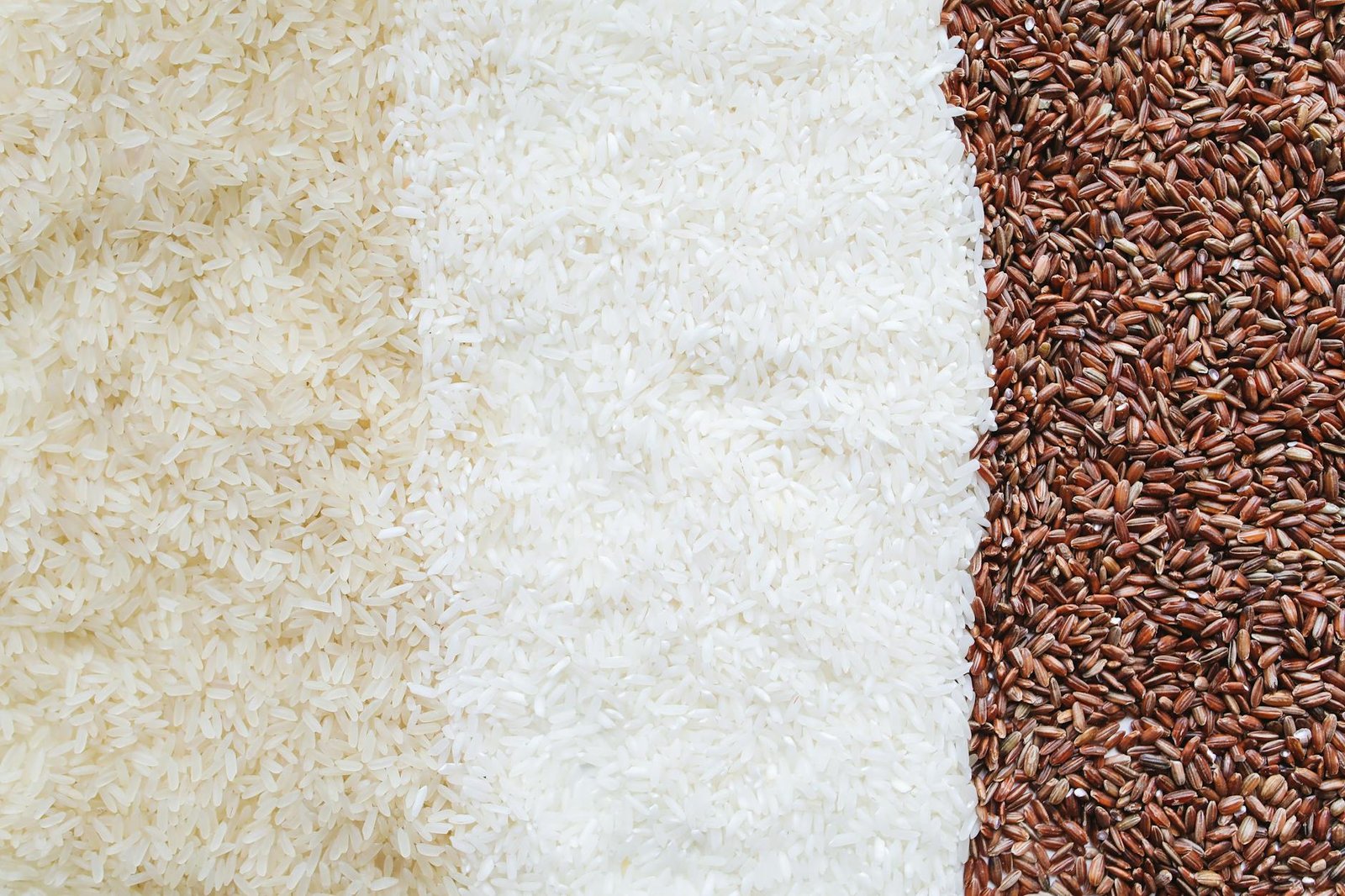Last Updated on October 16, 2024 by Daniele Lima
The Smart Guide to Incorporating Carbs in Your Diet for Effective Weight Loss
Weight loss is a personal and often difficult journey. However, the notion that you need to eliminate carbs to get effective results completely is wrong. Carbohydrates are an essential source of energy for our body and can be included intelligently in the diet to promote healthy weight loss. This article explains how to eat carbs and choose the right carbohydrates and incorporate them into your daily diet without compromising your weight loss goals. Here we explore practical strategies for replenishing these essential nutrients without sacrificing too much, allowing you to live a more balanced and healthy life.
Furthermore, it is important to consider the quality of the carbohydrates consumed. Minimally processed whole foods, such as fruits, vegetables, beans, and whole grains, not only provide complex carbohydrates, but are also rich in fiber, essential vitamins, and minerals. These nutrients contribute to the good functioning of metabolism and to the general health of the body. Unlike refined carbohydrates, which can lead to weight gain and other health problems, carbohydrates from natural sources of whole grains help maintain energy balance and promote the feeling of satiety, helping to check appetite more easily and reduce the total consumption of calories.
Table of Contents
Why Carbohydrates Are Essential for Healthy Weight Loss
Completely eliminating carbohydrates from the diet can cause fatigue, irritability, and reduced physical and mental performance. Our brains and muscles depend on glucose, derived from carbohydrates, as their main source of energy. Additionally, carbohydrate-rich foods, such as fruits and vegetables, are rich in fiber, vitamins, and minerals essential for overall health.
Top 5 Strategies for Including Carbs in Your Weight Loss Diet
1. Choosing Complex Carbohydrates: The Key to Sustainable Weight Loss
Choose complex carbohydrates: Choose whole foods such as oats, quinoa, sweet potatoes, brown rice, and vegetables. These foods are rich in fiber and help keep you feeling full, avoiding consuming too many calories.
2. Portion Control: How to Enjoy Carbs Without Overeating
Moderation is key: Instead of eliminating carbs, adjust your portion sizes. Consuming carbohydrates in moderation allows you to have enough energy without exceeding your calorie needs.
3. Balancing Carbs with Protein and Healthy Fats for Optimal Weight Loss
Combine it with protein and healthy fats: Mixing carbs with sources of protein and healthy fats, such as nuts, seeds, avocado, and olive oil, can help slow digestion and keep blood sugar levels stable.
4. Low Glycemic Index Carbs: Best Choices for Weight Management
Choose foods with a low glycemic index: Foods with a low glycemic index, such as lentils, beans, and some fruits, cause less increase in blood sugar. This can help control your appetite and reduce cravings for sweet foods.
5. Meal Planning: Incorporating Healthy Carbs for Successful Weight Loss
Plan your meals: Planning your meals and snacks in advance can ensure you make healthy, balanced choices throughout the day. Include a variety of healthy carbohydrates to keep your diet interesting and nutritious.
Table 1:
Incorporating carbohydrates into a weight-loss diet doesn’t mean giving them up entirely. The following table highlights five key strategies to enjoy carbs while staying on track with your weight loss goals.
| Strategy | Key Insight |
|---|---|
| Choosing Complex Carbs | Opt for whole foods like oats, quinoa, and sweet potatoes, which are rich in fiber and help control hunger, reducing calorie intake. |
| Portion Control | Enjoy carbs in moderation to maintain energy levels without exceeding your calorie needs, avoiding the need for complete elimination. |
| Balance with Protein and Fats | Combine carbs with protein and healthy fats like avocado and olive oil to slow digestion and stabilize blood sugar levels. |
| Low Glycemic Index Carbs | Choose foods like lentils and beans with a low glycemic index to help control appetite and reduce sugar cravings. |
| Meal Planning | Plan meals in advance to include a variety of healthy carbs, ensuring balanced and nutritious choices throughout the day. |
The Truth About Carb Labels: What to Look for When Shopping

Pay attention to the labels: Many processed foods contain refined carbohydrates and added sugars. Reading food labels can help identify and avoid these unwanted ingredients.
Sample Meal Plan: A Day of Healthy Carbs for Weight Loss
Example of a healthy carbohydrate-rich meal:
Breakfast: Oatmeal with fresh fruit, chia seeds, and a little honey. Oats are an excellent source of complex carbohydrates and fiber, while fruit provides vitamins and antioxidants.
Lunch: Quinoa salad with vegetables, chickpeas, and olive oil. Quinoa contains protein and complex carbohydrates, making it a great option for staying energized throughout the day.
Snack: Apple slices with almond butter. Apples provide healthy carbs and fiber, while almond butter adds protein and healthy fats.
Dinner: Grilled salmon fillet with roasted sweet potatoes and broccoli. Sweet potatoes are an excellent source of complex carbohydrates and essential nutrients.
Dessert: Natural yogurt with red fruits and granola. Yogurt is a good source of protein, and berries add healthy carbs and antioxidants.
Benefits of a balanced carbohydrate diet:
Incorporating balanced carbohydrates into your diet provides several benefits, including:
- Sustained energy: Complex carbohydrates provide stable energy, preventing sudden loss of energy.
- Improve digestion: Fiber-rich foods help with digestion and improve intestinal health.
- Appetite control: Fiber-rich complex carbohydrates help control appetite and reduce cravings for unhealthy foods.
- Improves mood: A balanced carbohydrate diet can improve mood and cognitive function, preventing irritability and mental fatigue.
Carbohydrates and Exercise: Fueling Your Workouts for Better Results

For people who exercise regularly, carbohydrates are even more important. They are the main source of energy during intense exercise. Consuming adequate amounts of carbohydrates before and after exercise can improve performance and speed muscle recovery.
Before training, choose easily digestible carbohydrates, such as fruit or whole grain bread with a source of protein. After training, it is important to replenish glycogen reserves with complex carbohydrates, combined with proteins to promote muscle recovery.
Debunking Common Myths: Carbs, Weight Loss, and Nighttime Eating
There are many myths surrounding carbs and weight loss. One of the most common is that all carbohydrates are bad and should be avoided. However, as we have seen, complex carbohydrates are essential for a balanced diet and can even help with weight loss.
Another misconception is that eating carbs at night will make you gain weight. In fact, what matters is the total number of calories for the day, not the time of eating. Therefore, if you control your portions and choose healthy carbohydrates, you don’t have to worry about consuming them at night.
Conclusion: Achieving Weight Loss with a Balanced Carbohydrate Approach
Losing weight doesn’t have to mean sacrifice and deprivation. Incorporating carbohydrates in an intelligent and balanced way can be an effective strategy for achieving and maintaining a healthy weight. By focusing on nutritious, complex carbohydrates in moderate portions and combining them with protein and healthy fats, you can enjoy a varied and tasty diet without compromising your weight loss goals.
Remember that the key to success is consistency and adapting your food choices to your lifestyle and personal needs. With planning and knowledge, it is possible to lose weight without giving up the joy of eating well.
Frequently Asked Questions (FAQ)
Can I really lose weight while eating carbs?
Yes, you can lose weight while eating carbs. The key is choosing complex carbohydrates, controlling portions, and balancing them with protein and healthy fats.
What are the best carbs for weight loss?
The best carbs for weight loss are complex carbohydrates like whole grains, vegetables, legumes, and fruits. These provide essential nutrients and fiber, which help you feel full and satisfied.
How many carbs should I eat per day to lose weight?
The ideal carb intake varies per individual, but generally, a moderate approach of 45-65% of total daily calories from carbs is recommended for weight loss. Consult a nutritionist for personalized advice.
Will eating carbs at night make me gain weight?
Eating carbs at night doesn’t automatically lead to weight gain. What matters most is your total calorie intake throughout the day, not the timing of when you eat carbs.
How do carbs affect exercise and weight loss?
Carbs are crucial for exercise performance and recovery. They provide energy for workouts and help replenish glycogen stores afterward, which can aid in overall weight loss efforts when combined with a balanced diet.









Leave a Reply